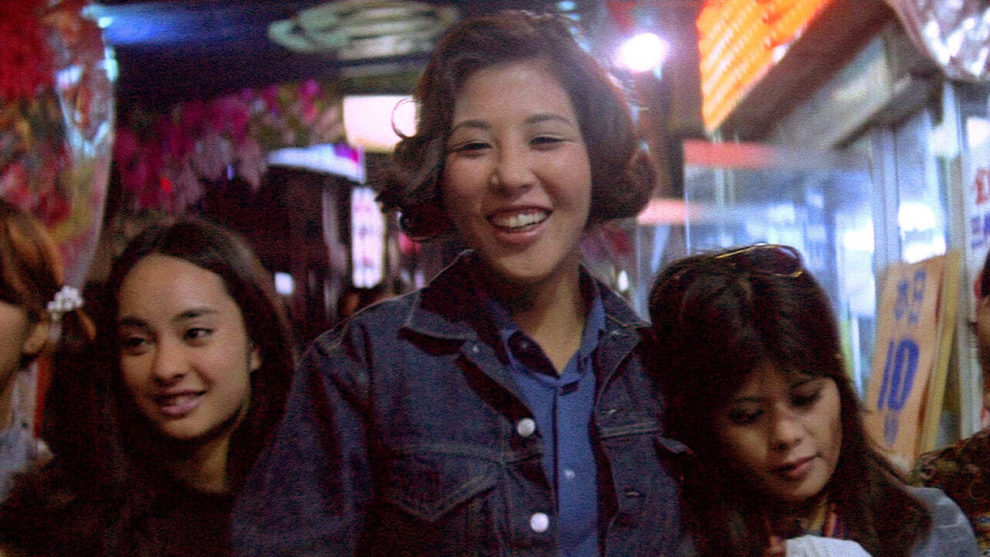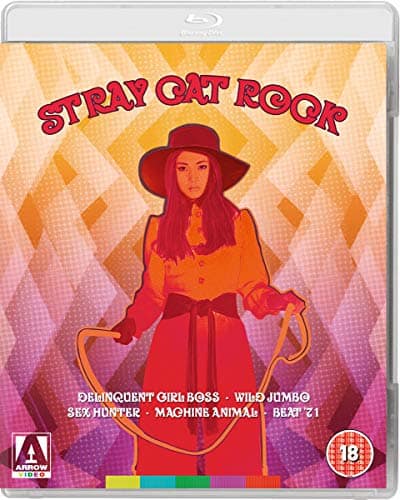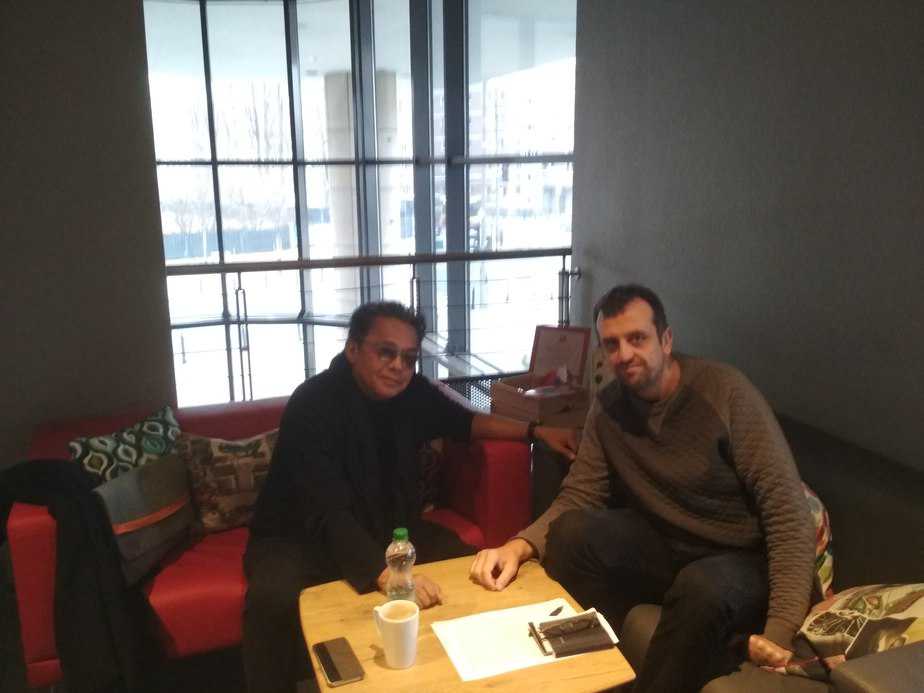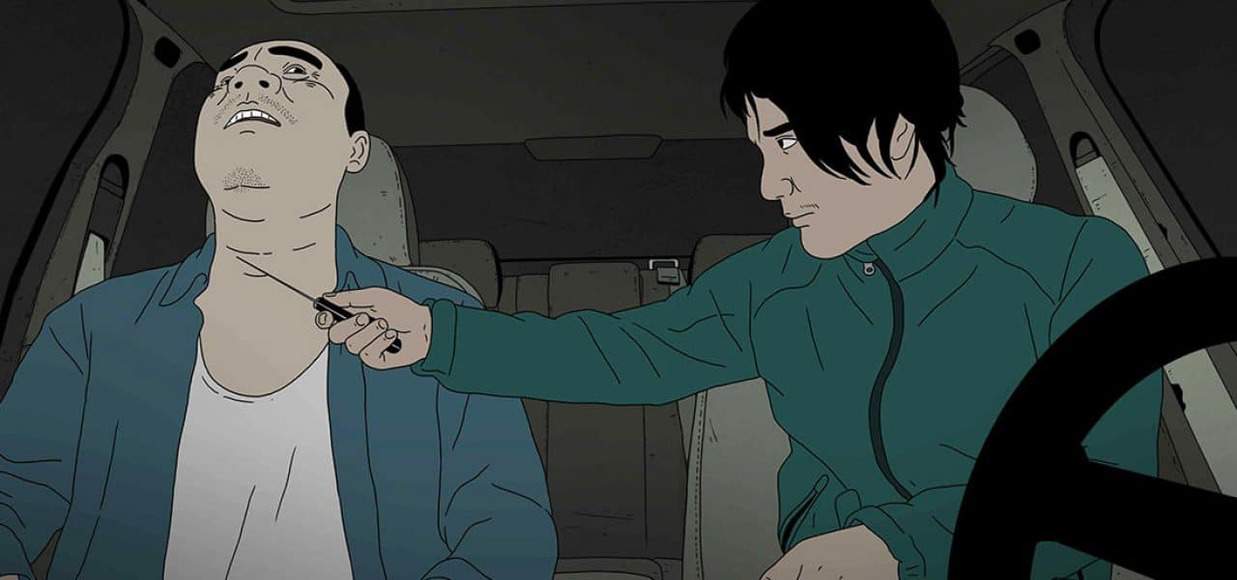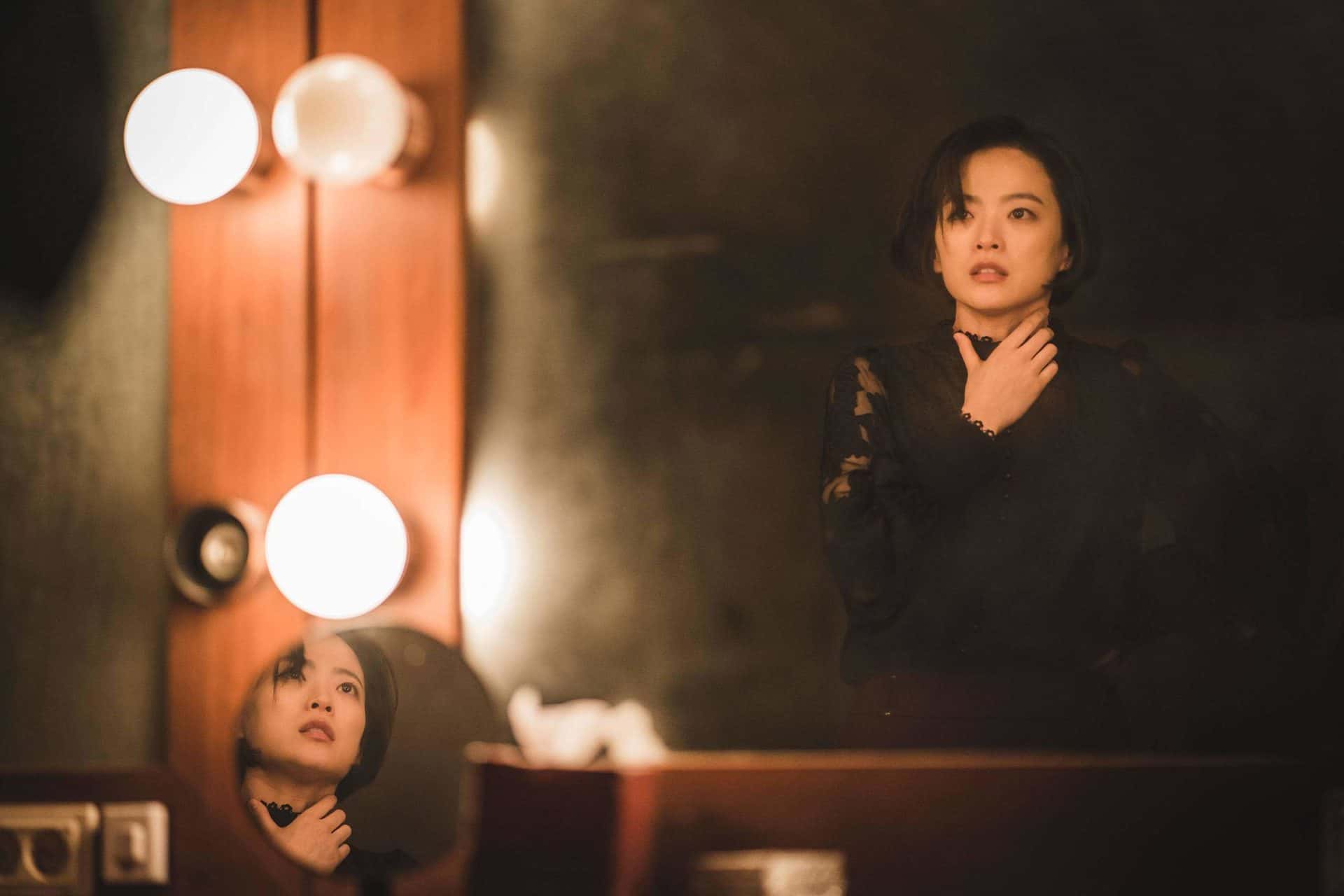The “Stray Cat Rock”-series was designed by Nikkatsu to compete with Toei's “Delinquent Boss”-series, in an effort of the company at the time, to attract more youth audiences to its movies, an approach that also included the appearances of pop idols and rock bands, as either themselves or playing supporting character. The first film of the series, “Delinquent Girl Boss”, was co-produced by talent agency Horipro, that also represented the protagonist, pop singer Akiko Wada. However, the one who truly shined in the film was Meiko Kaji, who became the protagonist of the remaining four films of the series.
Buy This Title
Mei is the hard-nosed leader of an all girls gang, the Stray Cats, who, as the film begins, are about to have a fight with similar group. Mei, who has just before met girl biker Ako, emerges victorious, even slashing the opponents' leader with her knife, but soon realizes that they have fallen into a trap. Their adversaries have brought along a gang of men on motorcycles, led by Katsuya, ambushing the Stray Cats. Mei saves the day, highlighting her uncanny strength, and immediately becomes a member of the gang. However, a member of their group has been kidnapped. The decision of whether to go save her divides the group, with Mei being reluctant and Ako eager.
Meanwhile, Mei's boyfriend Michio, wants to join a right-wing nationalist group, the Seiyu, despite Mei's protests. To prove himself, he convinces an old friend Kelly to throw a boxing match so the Seiyu Group can cash in betting against him. A bit later, it is revealed that the leader of the Seiyu is Katsuya's brother, while Mei and Ako's interaction with the fight brings both the gang and Michio against the combined forces of the two brothers.

The movie moves mainly in two axes. The first one focuses on action and includes a number of impressive and rather violent gang fights, numerous scenes focusing on fast bike riding, even including a rather impressive chase in an underground parking lot, and intense exploitation elements, particularly deriving from a number of torture scenes.
The second axis is the “promotional” one, featuring a number of lengthy live performances in the night club the group frequents, including Wada's but also of real-life rock bands like The Mops and The Ox. This aspect also extends to Ako's character, who is portrayed as a cooler than life super-hero type that never backs down and never loses, even when pinned against men. The final scene also cements this approach. Furthermore, in a rather interesting approach, Hasebe takes advantage of her butch appearance, including her height, size and deep voice, to give her a rather androgynous hypostasis, which also suggests some kind of Sapphic relations with some of the members of the group, which are more implied though, than actually materialized.
Inside this entertainment-focused narrative, however, Hasebe has also managed to include a number of sociopolitical comments. The connection of the far right with biker gangs is the most evident, as much as the corruption these groups dealt with. That the underground, hippy-revolutionary movement, as exhibited in the “inhabitants” of the underground club, eventually clashes with the far right organization is another political comment. The concept of the “halfu” who is exploited through friendship adds a social comment, while the theme of companionship is exhibited thoroughly through the relations of the gang members.
DP Muneo Ueda depicts all the aforementioned with an artistry that goes much beyond the evident small budget of the movie, with his presentation of the many different locations, including the club, the hideout, the group's offices, and the lots and streets the fights take place, with equal artistry. Akira Suzuki's editing implements a rather fast pace that suits the overall aesthetics of the movie perfectly, while both aspects find their apogee in the action scenes, but also on the live performances, which are actually quite well-implemented in the movie.
Akiko Wada may be the protagonist as Ako, but despite Hasebe's efforts, her performance comes across as stiff, particularly when compared with the rather nuanced one by Meiko Kaji as Mei, who highlights the layers of her character, including a number of moments she falters, quite impressively. Tatsuya Fuji as Katsuya makes for a great villain, also because his power amounts to nothing in front of his brother's, while Koji Wada as Michio is convincing as the lost young man, who joins a right group because he seems no other way of improving his life, in another sociopolitical comment.
“Stray Cat Rock: Delinquent Girl Boss” is a great introduction to the series, a film that aims at entertainment and definitely succeeds, but also manages to include much depth through its comments.


